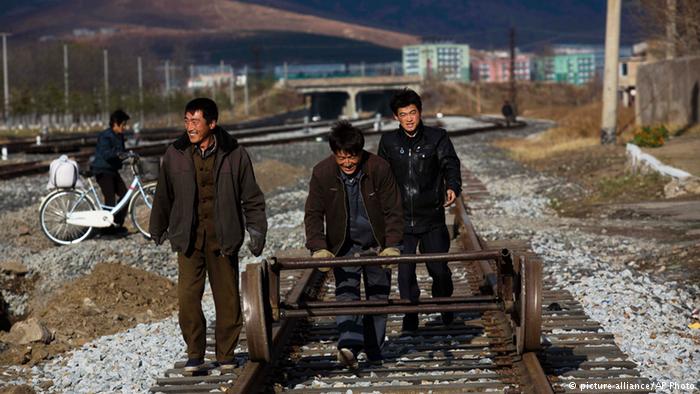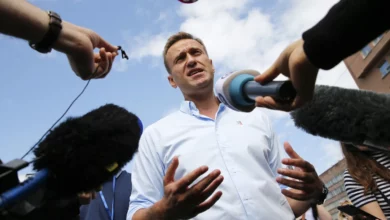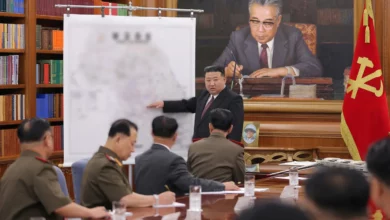
At a time when the United States is calling for more restrictions on fuel exports to North Korea, Russia may be attempting to avoid the total collapse of the regime in Pyongyang. Julian Ryall reports from Tokyo.
The price of diesel oil and gasoline in North Korea has dropped sharply in the last month, according to reports from within the isolated republic, with Russia apparently stepping up supplies in spite of international efforts to isolate the regime of Kim Jong Un and force Pyongyang to abandon its development of nuclear weapons and long-range ballistic missiles.
According to “citizen journalists” who report on events inside North Korea for the Osaka-based Asia Press International (API) news agency, fuel prices began to fall in November after several months of fluctuations.
Reports put the price of one kilogram of diesel oil at US$0.82 (0.7 euros) now, down 60 percent from early November, while gasoline is being sold for around $2 (1.68 euros) per one kilogram, down 25 percent.
The sharp declines come despite increasingly stiff sanctions imposed on Pyongyang, including measures designed specifically to limit the amount of fuel that North Korea can obtain. Resolution 2375, adopted by the United Nations Security Council shortly after the North’s sixth underground nuclear test on September 3, singled out fuel supplies for sanctions, and the US government has since stepped up its calls for China to halt the flow of oil over the border.
Oil over the border
One of API’s correspondents claims, however, that “massive amounts” of fuel are coming into the border province of Yanggang from Russia.
“It is difficult to know exactly how much fuel is getting into North Korea, but it does appear that Russia has recently been supplying Pyongyang with fuel,” said James Brown, an associate professor of international relations and an expert on Russia-North Korean trade at the Tokyo campus of Temple University.
“It appears that Russia, in particular, but also China, are losing patience with the US,” he told DW. “They feel that they have done their part in putting new pressure on North Korea but that Washington should be doing more.”
While Beijing and Moscow supported sanctions in the autumn, North Korea went for more than two months without launching any missiles, Brown points out. Yet Washington made it clear that it was going ahead with joint US-South Korea air exercises, which began in South Korean air space on Monday.
When the US confirmed that the largest ever joint air exercises – 230 aircraft practicing attacks on North Korea’s nuclear facilities and missiles bases – would proceed as planned, Pyongyang resumed missile launches.
The intercontinental ballistic missile launched on November 29 is understood to have a range of around 13,000 km, putting anywhere in the US within range.
Hurting the North
“Russia may very well feel that the US provoked the most recent missile test by the North and it is not at all clear that Beijing and Moscow will help cut off all fuel supplies because that that represents the ‘nuclear option’ that would really hurt the North,” Brown said.
“And while that is exactly what the US wants, Russia is extremely wary of the consequences of the North collapsing,” he added.
Moscow’s concerns include conflict breaking out on its Far East border, a sudden influx of vast numbers of refugees or a civil war in the North in which numerous players are vying to win control of the country’s nuclear weapons.
Daniel Pinkston, a professor of international relations at the Seoul campus of Troy University, agrees that there are indications that Moscow is trying to “stabilize” the situation in North Korea in order to avoid a collapse, while some point out that restricting deliveries of fuel oil during the North’s notoriously harsh winters would inevitably have a humanitarian cost on ordinary people.
“There is also the argument that if the North Korean leadership feels that the screws are being tightened too much and that their situation is deteriorating and there are no prospects of it improving, then they might take some kind of coercive, kinetic action to change that situation,” he said.
Escalate a way out
“Even if they accept that they are in a relatively weakened position and have no chance of winning an all-out war, it is possible that they might try to escalate their way out of a deteriorating situation with the threat of some kind of action in return for concessions.”
There are also suggestions that Russian policy in the Far East is being shaped by President Vladimir Putin’s hostility towards the West over the conflict in the Ukraine, while relations between Moscow and Washington are uncomfortable due to allegations of Russia meddling in the US elections.
In addition, Brown points out that if Russia is able to obtain some kind of economic leverage over North Korea, it might give Moscow leverage that could be used to encourage the US to drop its hostility. “Similarly, that leverage might be used to encourage Pyongyang to dial back the aggression, making Moscow appear as the “responsible stakeholder in the region,” he added.




